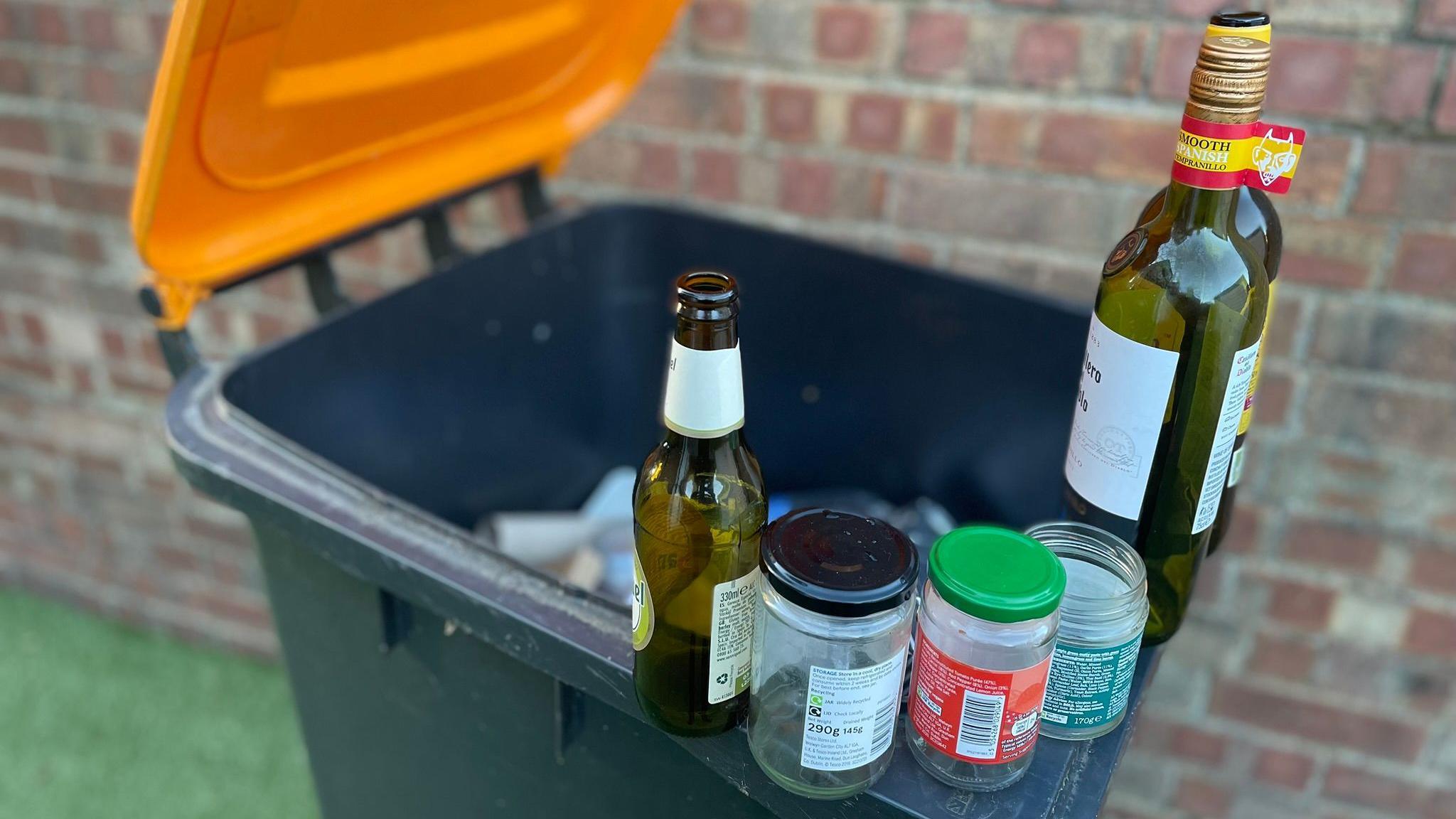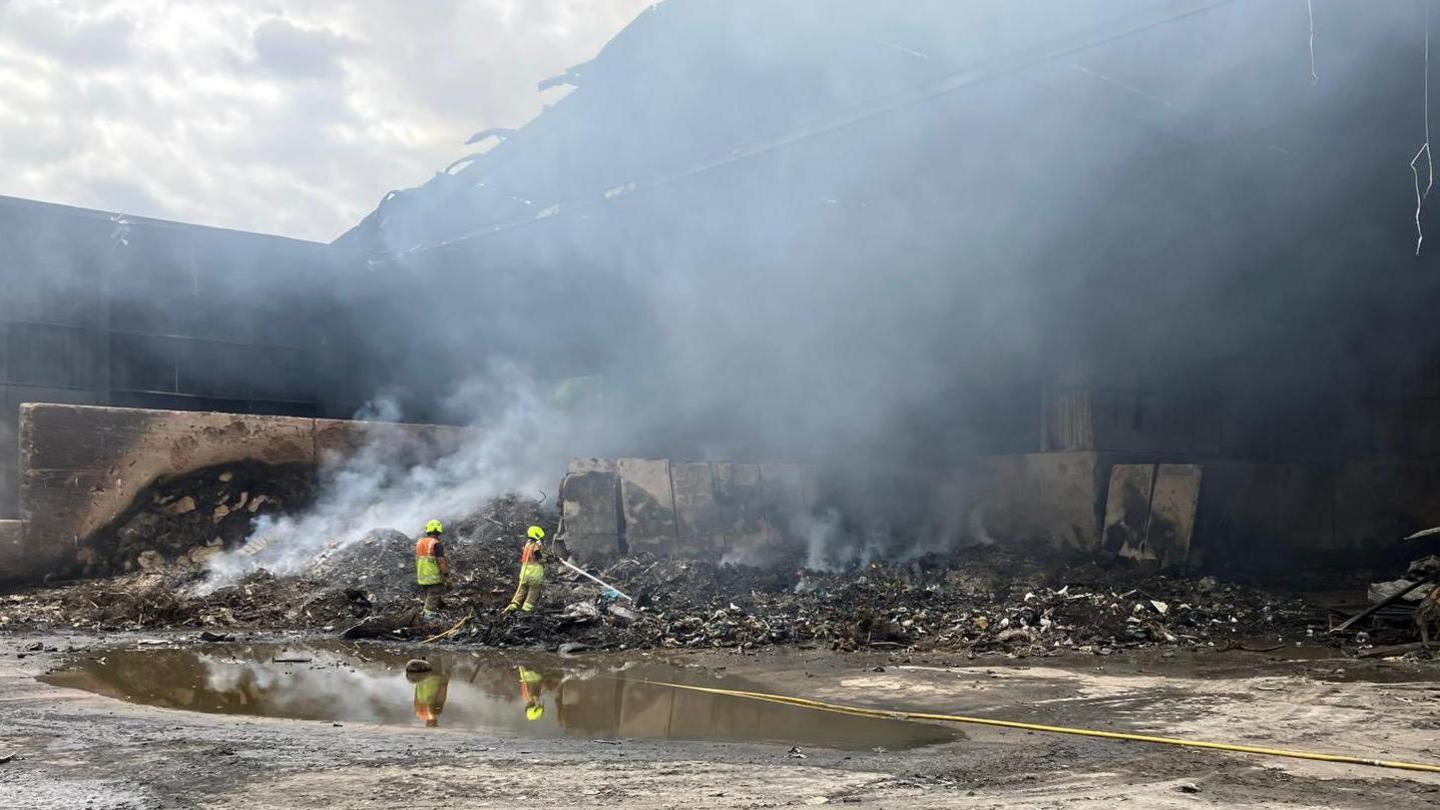Waste blaze caused by battery, says fire service
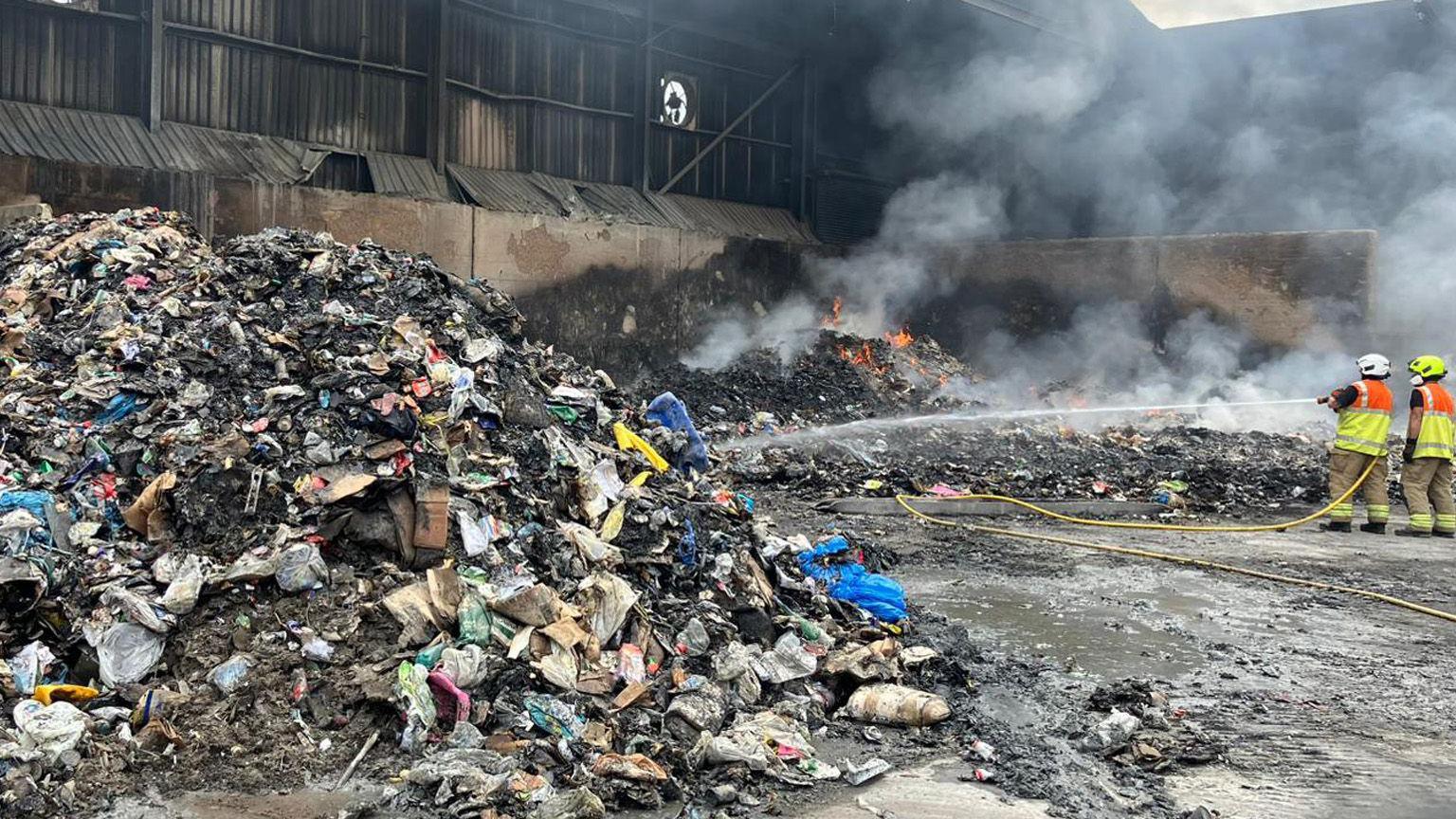
Crews spent several days containing the fire at the Elstow Waste Transfer Station in Bedfordshire
- Published
A large blaze at a recycling storage centre was probably caused accidentally by a lithium-ion battery, a fire service has confirmed.
The fire at Elstow Waste Transfer Station in Bedfordshire started on 4 July and was put out six days later on 10 July, and involved a large amount of non-hazardous household recycling.
Bedfordshire Fire Service said the building where it started had to be demolished after it was declared unsafe by a structural engineer.
It said that "due to structural safety concerns" a "focused examination" was not possible, and it gathered evidence from eyewitnesses, CCTV footage, and analysed materials.
Veolia, which runs the site, said putting batteries in bins was an "all too common occurrence across the waste industry".
"We are very grateful for the response of the emergency services to the fire and thankful that none of our teams or the public were harmed.
"Our contingency plans are allowing essential recycling and waste services to continue while we work to rebuild the site."
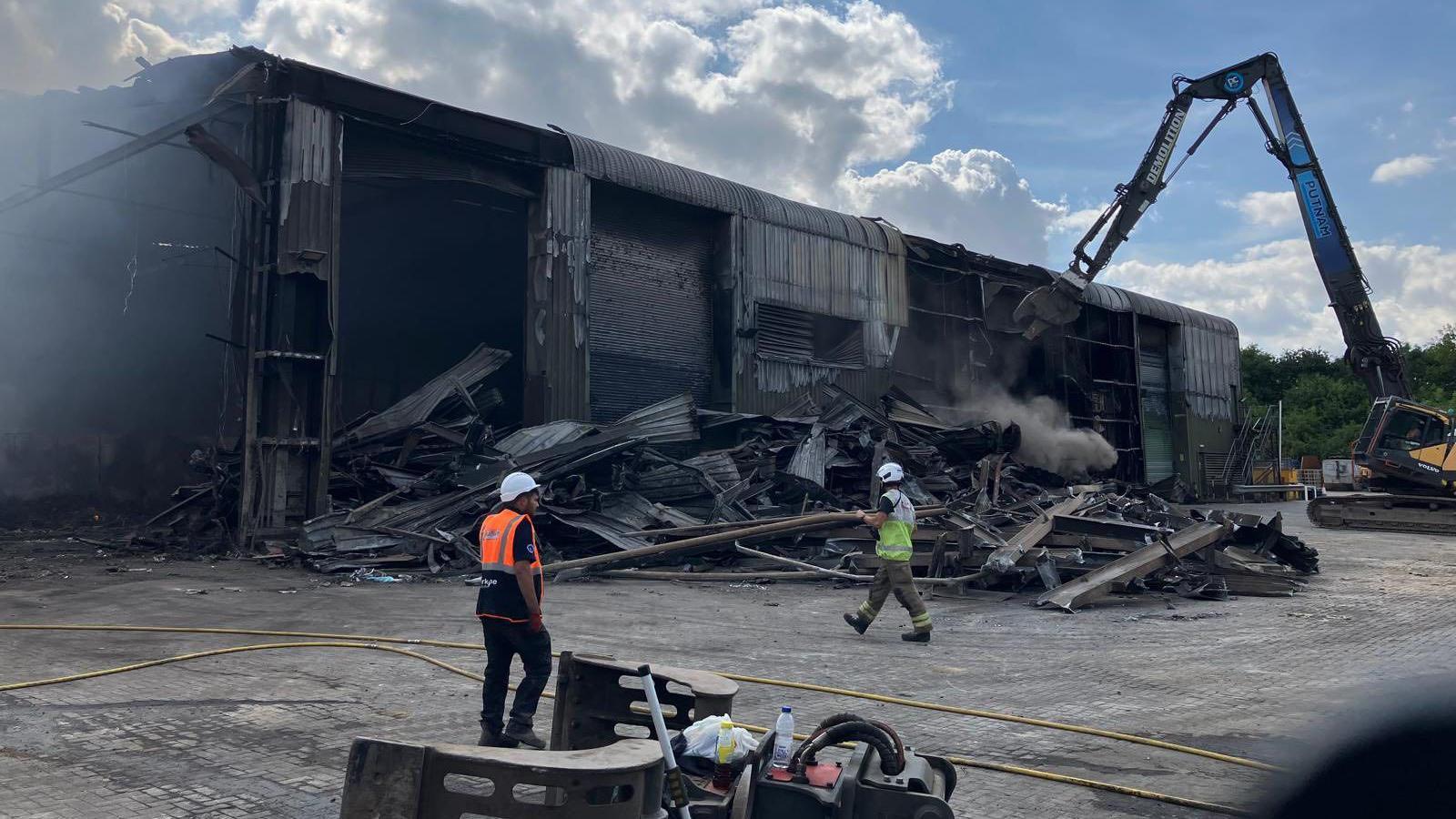
A building where the fire started had to be demolished
The fire service said: "A full fire report was not required due to it being an accidental fire.
"Although a focused examination of the scene was not possible due to structural safety concerns, the fire investigation team gathered evidence through other means, including eyewitness accounts, CCTV review, and analysis of available materials.
"The most likely cause of the fire was identified as an ignition source within the waste, potentially a lithium-ion battery."
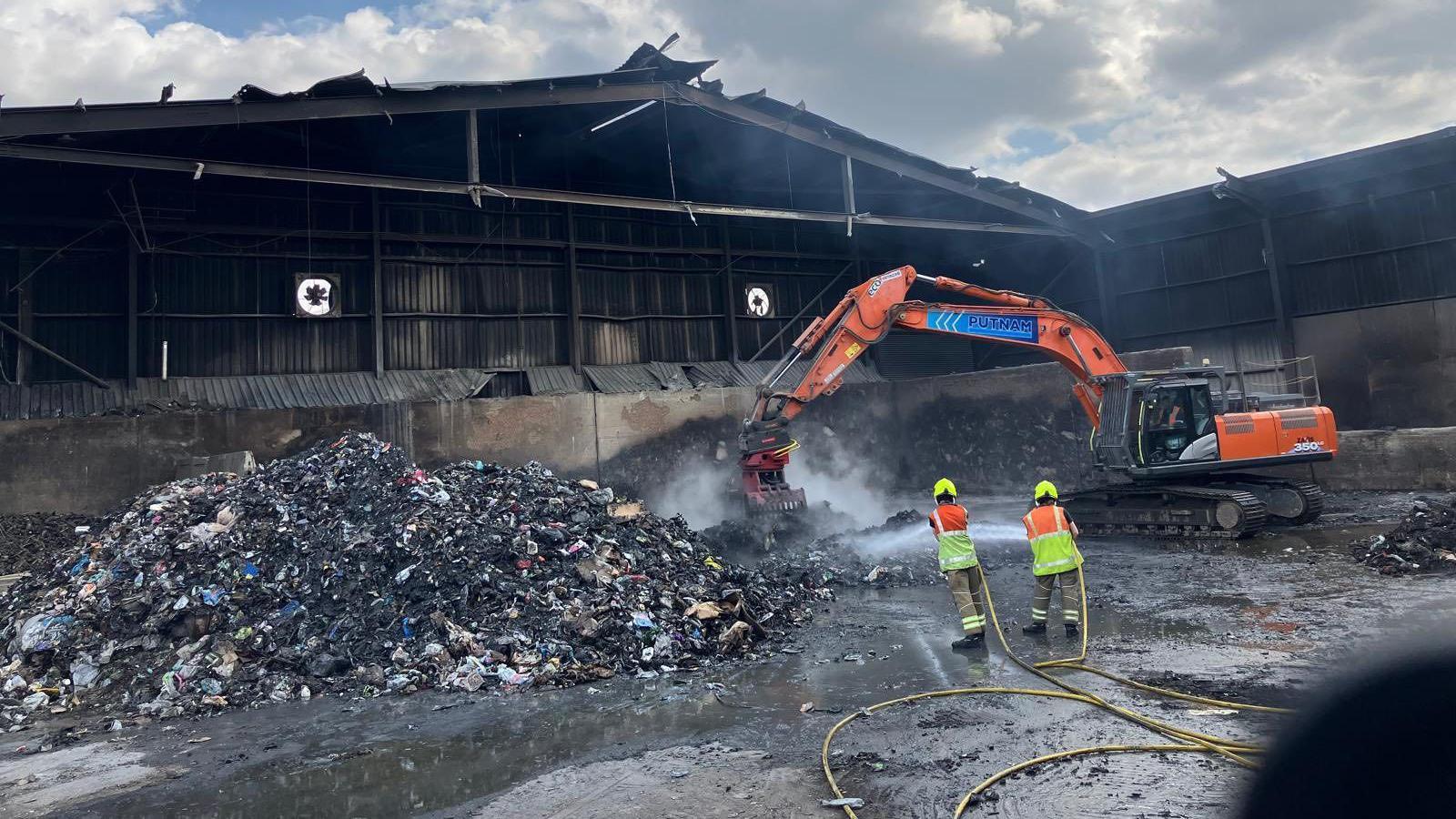
Several organisations were involved with the fire, including police, the Environment Agency and local councils
The fire service added that lithium-ion batteries should never be placed in the same bins as rubbish or recycling.
"They can ignite if damaged, crushed, or overheated in bin lorries or waste and recycling facilities."
It asked people to dispose of them safely and appropriately.
Lithium-ion batteries are found in many household items, including mobile phones, laptops, and vapes as well as larger products like e-bikes, e-scooters and hoverboards.
Get in touch
Do you have a story suggestion for Beds, Herts & Bucks?
Follow Beds, Herts and Bucks news on BBC Sounds, Facebook, external, Instagram, external and X, external.
- Published10 July
- Published9 July
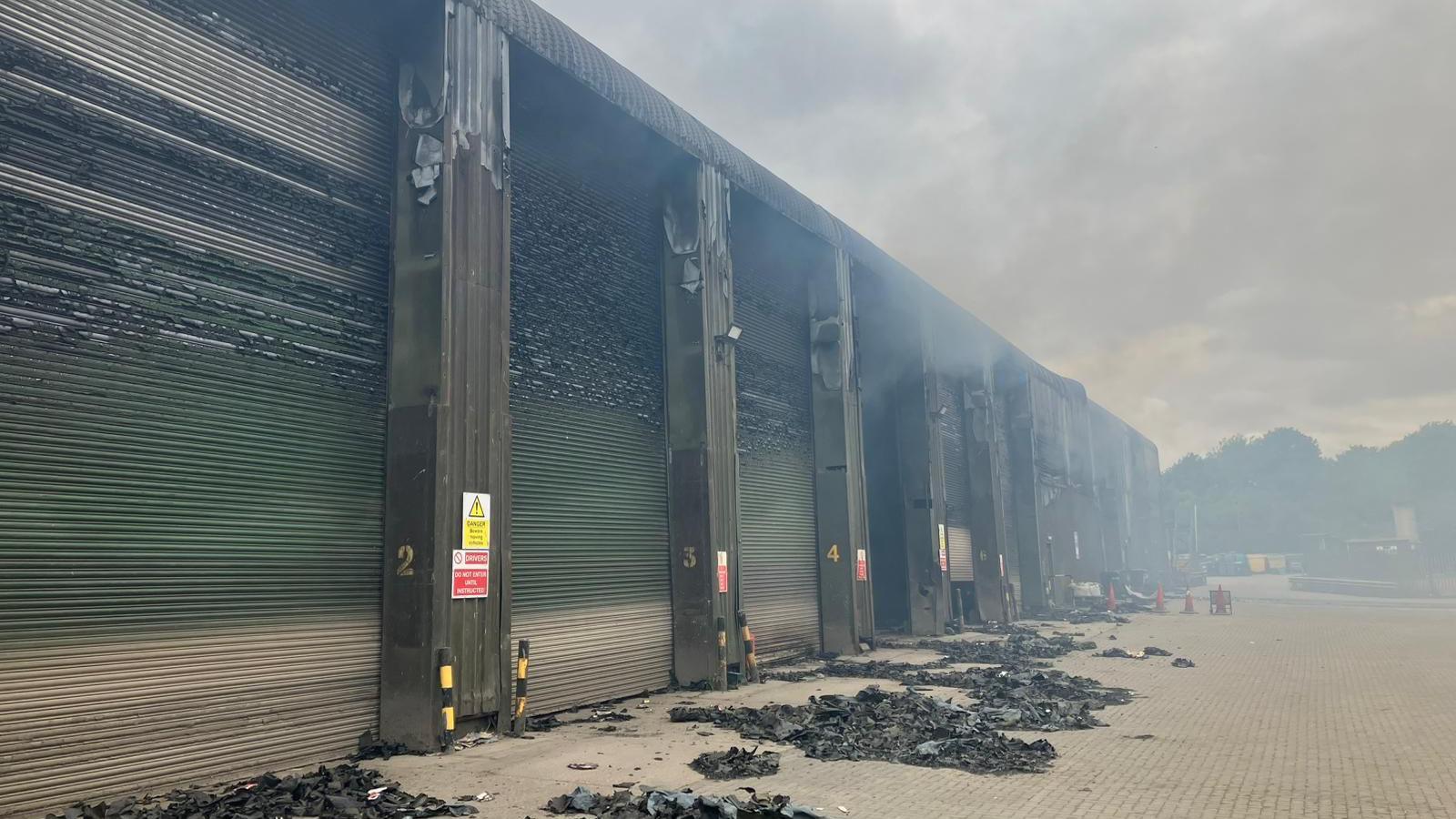
- Published5 July
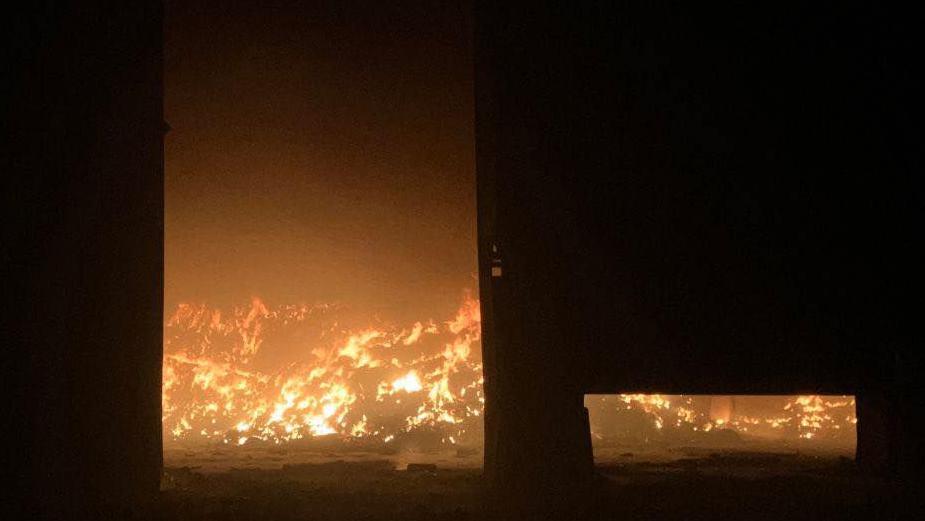
- Published9 October
